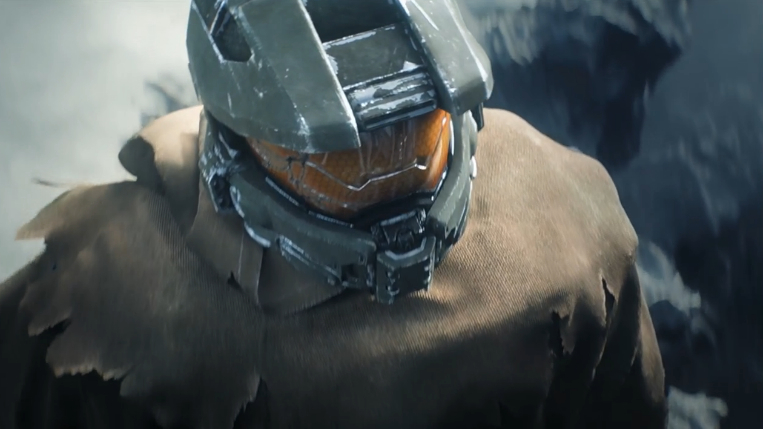The Xbox One reversal has only postponed an inevitable DRM future
It comes down to compromise

Sign up for breaking news, reviews, opinion, top tech deals, and more.
You are now subscribed
Your newsletter sign-up was successful
No, I'm not about to pull a "Microsoft's Xbox One U-turn was a huge mistake". It made the right decision for its business, the one that people wanted, and it will play out in its favour. I'm fine with that.
But sooner or later we're going to have to accept that its vision for a digital future is one that's coming whether we like it or not, and that's not such a bad thing.
Microsoft's plan may have seemed too bold, but a lot of it wasn't as sinister as people were led to believe. Its downfall was its failure to compromise tradition and progress - and an inability to articulate the benefits of the cloud to consumers.
- Here it is: our updated Xbox One review
The Family Sharing idea, for example, is actually a pretty neat one that I'll be sad to see go. A lot of people like the idea of not having to carry their physical discs around when they travel, and being able to share your collection with 10 friends (a sort of "try before you buy" option) was one of the biggest wins of the Xbox One to me.
As for purchasing and reselling games, once the DRM system was locked in it could have done our wallets a lot of favours. Publishers would make money from game resales, allowing initial prices to be driven down.
But the people spoke. They weren't ready to make that leap yet. Meanwhile, bad PR and poorly-thought-out comments from Microsoft just snowballed into disaster.
Follow the leader
But the thing is, someone is going to make that leap for us eventually. Microsoft doesn't want to U-turn on DRM right now, but defying the backlash would be bad for business in the short term.
Sign up for breaking news, reviews, opinion, top tech deals, and more.
And yet, the place we've moved back to is one that's worse for the industry overall. An industry where publishers have to find uninspiring ways of packaging games in order to maximise initial sales.
Finding a way to bring the best of both the online and offline (and physical and digital) worlds together is key to adapting to a digital, cloud-based future, and Microsoft wasn't far off. With better explanation of the benefits it could bring, Microsoft had a real fighting chance of giving us the only true "next-gen" console.
But to think that Sony didn't consider going down a similar route might also be naïve. I'd have liked to see how E3 played out had Microsoft revealed the console there instead of at its May event.
Sure, Sony came out of E3 as the clear winner, but it won by keeping things exactly the way they are and by having a time advantage on Microsoft. For all we know, it could have had some very similar policies for the PS4 until it witnessed the Xbox One backlash.
The Steam factor
The comparisons with Steam may have been exhausted but it's also worth talking Steam Box for a moment. What happens when Valve drops its fabled foray into the console market, all the standard DRM included? I can probably tell you right now: people will lap it up.
And they'll do so because Steam is in a position where it's had the time to consolidate itself. It can feasibly offer those low prices, and we'll all overlook the ownership and online connectivity requirements because at the end of the day we're getting a great deal out of it. Even though it's a console. Hooked up to our TV. Just like your Xbox One.
You might remember that Steam had its own teething problems when it started out, yet now it's the PC gaming go-to. Microsoft was giving us its own Steam Box in almost everything but name - it just couldn't explain it to us.
Microsoft deserves to be applauded for listening to consumers. But it also deserves some respect for attempting that first big step into the future, even if the world stopped it putting the foot down.
Yes, like Steam it would have taken a bit of time to bloom. But for now we won't know what the pre-U-turn Xbox One could have grown into.
However, I like to think that as this gaming generation evolves, we'll see Microsoft drip feed these ideas back in. Only this time, Microsoft with know what it needs to do to get the message right and find a compromise between online and offline connectivity - perhaps an opt-in or opt-out setup.
One day, we'll find ourselves in the digital utopia that Microsoft planned all along. And I really don't think people will be complaining when we do.
- Gary Marshall says Microsoft was right to listen to the voice of the internet. Agree? Disagree? Tell us in the comments.

Hugh Langley is the ex-News Editor of TechRadar. He had written for many magazines and websites including Business Insider, The Telegraph, IGN, Gizmodo, Entrepreneur Magazine, WIRED (UK), TrustedReviews, Business Insider Australia, Business Insider India, Business Insider Singapore, Wareable, The Ambient and more.
Hugh is now a correspondent at Business Insider covering Google and Alphabet, and has the unfortunate distinction of accidentally linking the TechRadar homepage to a rival publication.